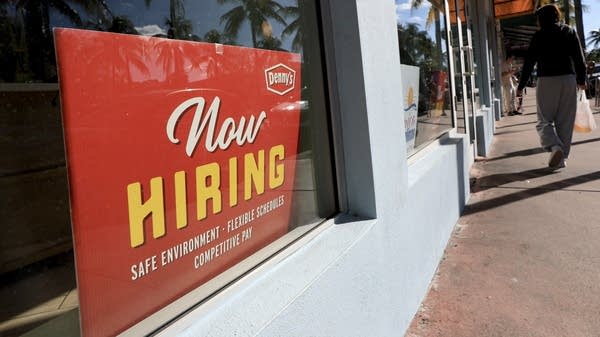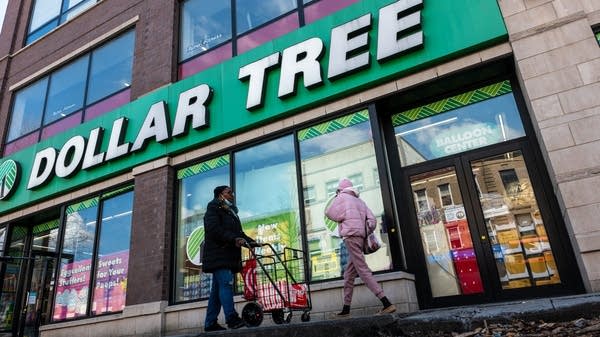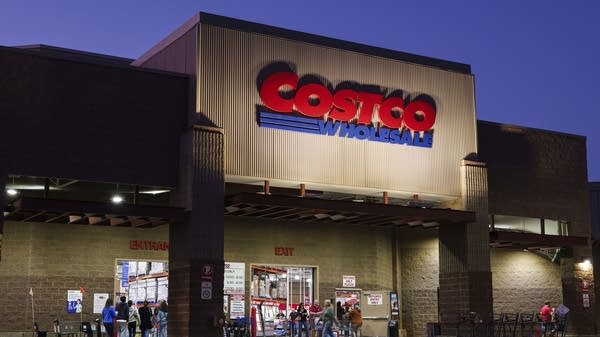A few retailers are bucking the doom and gloom forecast trend
Dick’s Sporting Goods is standing by its forecast for the year, despite everything happening with economic policy. It joins a small group of retailers that are worried, but not too worried.

This earnings season has been sprinkled with some doom and gloom, with many companies citing worries about tariffs and lowering their expectations for the year. But today, Dick’s Sporting Goods bucked that trend. The retailer is standing by its forecast for the year, despite everything happening with economic policy, joining a small group of retailers that say they’re worried, but not too worried.
Dick’s has a few things going for it: A fairly diverse supply chain, which insulates the retailer a bit from tariffs. A mix of trending brands, like On and Hoka. And the stores can be fun.
“You’ve got the climbing wall, you’ve got the batting cage, a lot of times they’ll have golf simulators,” said Anthony Chukumba, managing director at Loop Capital Markets.
Plus, the retailer sells sporting goods, a category that has continued to flourish despite consumers' fickleness. So if sales are strong now, during a slower season, they will be later.
“Where a lot of retailers will see a pickup in spending is in the back half of the year where you have back to school and obviously holiday,” Chukumba said.
Some of the retail industry’s surprisingly good first quarter sales, though, are an anomaly, said Barbara Kahn, a marketing professor at Wharton. Consumers are front loading purchases.
“And so there has been some increase in spending in some categories to buy these products before the impact of tariffs hits,” she said.
Now typically, one might think consumers stocking up now means they’ll spend less in the future. Especially if they’re worried about a recession.
But Chukumba said companies don’t hinge their businesses so much on soft data, like feelings.
“What’s more important to look at is things like employment, right? I mean you can’t spend if you don’t have a job. Wage growth, you know, gas prices. I think those are a lot more correlated with consumer spending than consumer confidence,” he said.
Plus, yesterday’s report shows consumer confidence made a big rebound.
Kahn at Wharton said even if retailers are worried about tariffs — even if they think sales will drop — they’re learning to be hush hush about it. Because when Walmart recently said it would need to hike prices, President Trump said the retailer should, “eat the tariffs.”
“That’s a tricky road to walk down because I think attention in this case isn’t so great,” Kahn said.
So more and more, companies may put their heads down and publicly maintain the status quo.













